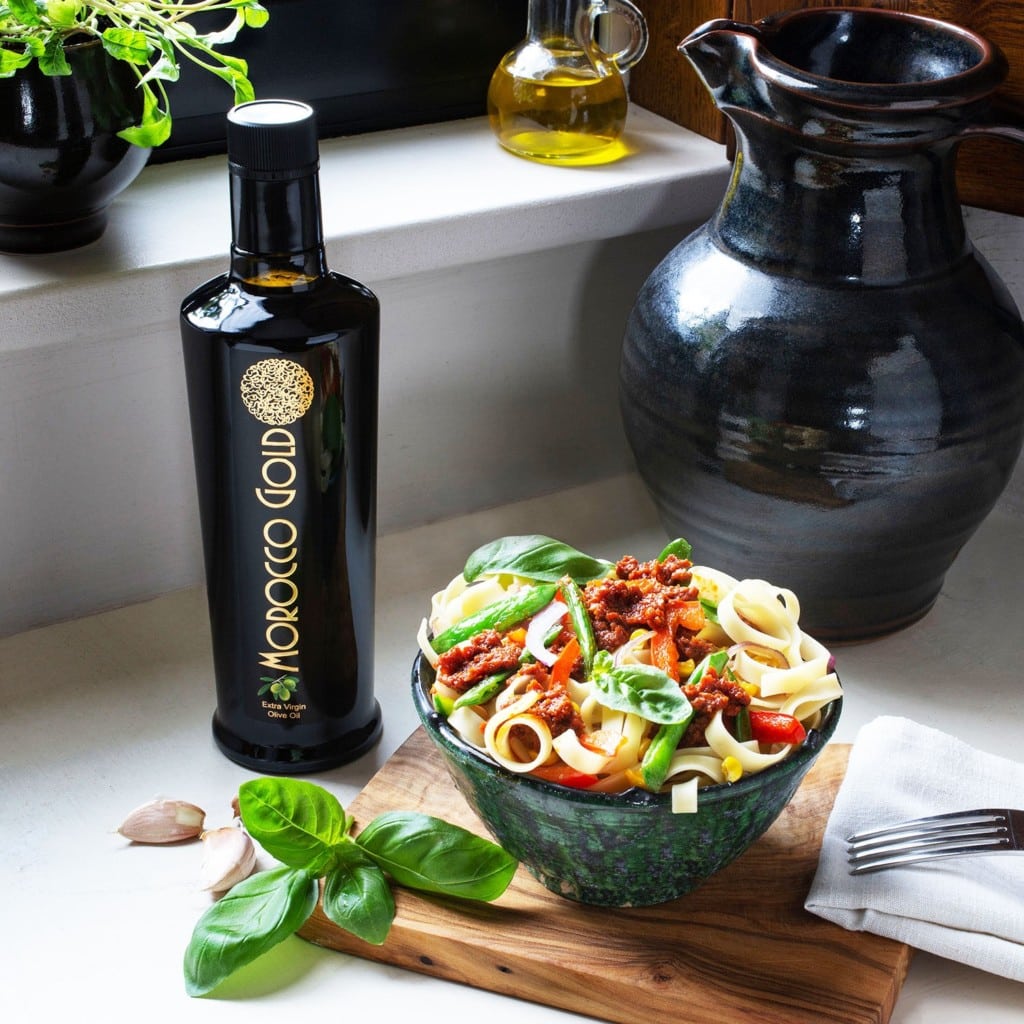Common Traits of Diets – Including Extra Virgin Olive Oil – Linked To Health Benefits & Lower Risk Of Death
Updated October 16th 2023

Summary:
- Extra virgin olive oil has long been lauded as one of the best oils for cooking and salad dressings. But is it more than just a delicious foodstuff? Some experts believe that high quality extra virgin olive oil may in fact be a medicine of sorts, due to its high levels of polyphenols.
- These plant compounds have been linked to a variety of health benefits, from reducing inflammation to protecting against heart disease and cancer. While extra virgin olive oil may not be a cure-all, it certainly has a place in the medicine cabinet as well as the kitchen pantry. So next time you’re reaching for the best olive oil you can find, remember that it’s not just a tasty addition to your meal, but also a potential health booster.
Contents:
- Why This Is Important
- Studies Backing Plant-Based Diets And Long Term Health
- Scientific Links Between Extra Virgin Olive Oil And Lower Risk Of Death
- Why Extra Virgin Olive Oil And Plant Based Diets Are The Perfect Match
- Conclusion: Choose The Best Plant Based Diet Combination For You
Why This Is Important
Unhealthy habits and poor nutrition have become major issues worldwide. However, incorporating extra virgin olive oil into a plant based diet can help promote healthier living and reduce the risk of many chronic diseases. According to studies, extra virgin olive oil is the best type of olive oil for its high polyphenol content, which plays an important role in reducing inflammation and protecting against chronic diseases.
We know what we eat affects our overall health and well-being, but recent research has shown that a Mediterranean-style plant-based diet may be the ticket to a longer life.
Studies have found that those who consume more fruits, vegetables, whole grains, healthy fats and legumes have a decreased risk of chronic diseases like cancer, heart disease, and diabetes. These findings suggest that going green might just be the key to not only feeling healthier, but living longer too. So maybe it’s time to add some more veggies to your plate and see where it takes you.
Studies Backing Plant-Based Diets And Long Term Health
A recent report in WellAndGood, highlights the one factor that eating plans which lead to longer lifespans have in common and it’s good news for lovers of extra virgin olive oil
As explained by WellAndGood:
A recent study in Jama Intern Med set out to determine the association between the dietary patterns recommended in the 2015-2020 Dietary Guidelines for Americans. The experiment, which included nearly 120,000 individuals (75,230 women and 44,085 men), reviewed the participants’ eating patterns over the course of over three decades. The findings indicated that those that who adhered to four main “healthy” eating patterns were associated with a lower risk of death. Their findings were also consistent among different racial and ethnic groups.
The Top Four Healthy Eating Plans And Reduced Risk Of Death
The four “healthy” eating plans analyzed in the study were:
- Healthy Eating Index 2015 (HEI-2015)
- Alternate Mediterranean Diet (aMED) score
- Healthful Plant-Based Diet Index (hPDI)
- and Alternate Healthy Eating Index (AHEI)
WellAndGood examines each one closely, saying:
The HEI uses a scoring system to evaluate a set of foods. The scores range from zero to 100, where a score of 100 reflects that the set of foods aligns with key dietary recommendations from the Dietary Guidelines. Ranking at the top are fruits, vegetables, whole grains, dairy, total proteins (like lean meat, poultry, and eggs), seafood, plant proteins (like nuts, seeds, or soy), and fatty acids. Meanwhile, refined grains, sodium, added sugars, and saturated fats are to be consumed in moderation.
Well + Good
Next, the Alternate Mediterranean Diet (aMED) score is an adaptation of the Mediterranean diet that separates fruit and nuts into two groups, eliminates dairy, includes only whole grains, only red and processed meat, and uses the same alcohol range for both men and women.
The Healthful Plant-Based Diet Index (hPDI) measures nutrient-density within the category of plant-based foods—top foods being fruits, vegetables, whole grains, nuts, legumes, tea, and coffee. Plant-based foods like refined grains and high-sugar foods, as well as animal-based foods, score low.
Lastly, the Alternate Healthy Eating Index (AHEI) assigns ratings to foods and nutrients predictive of chronic disease. (So someone that consumes no vegetables daily would score a zero, while someone who consumes five or more servings a day would earn a 10.) As such, a study conducted on 71,495 women and 41,029 men showed that those whose dietary choices scored higher on the AHEI scale had a 19 percent lower risk of chronic disease, including a 31 percent lower risk of coronary heart disease and a 33 percent lower risk of type 2 diabetes when compared to people with low AHEI scores.
Scientific Links Between Extra Virgin Olive Oil And Lower Risk Of Death

Another recent study, published in the Journal of the American College of Cardiology, analysed the diet of around 90,000 men and women over a 28-year period. None of them had heart or circulatory disease or cancer at the outset. Every four years they were asked how often they ate specific foods.
Researchers found those who consumed the most olive oil (more than half a tablespoon a day) were less likely to die from any cause, including heart disease or stroke, cancer, lung disease and neurodegenerative disease (such as Alzheimer’s disease or vascular dementia).
After adjusting for other factors, the people who ate the most olive oil had a 19 per cent lower risk of dying from cardiovascular causes such as heart disease or stroke, compared with the people who ate the least olive oil. The biggest effect was seen in neurodegenerative disease deaths (29 per cent lower risk in people who ate most olive oil). For respiratory disease the risk was 18 per cent lower and for cancer it was 17 per cent lower.
The study also found substituting 10 grams a day (just over a tablespoon) of fats such as margarine, butter, mayonnaise and dairy fat with the equivalent amount of olive oil was also associated with a lower risk of death.
Why Extra Virgin Olive Oil And Plant Based Diets Are The Perfect Match
Extra virgin olive oil has been a staple ingredient in the Mediterranean diet for centuries, which is regarded as one of the healthiest diets globally. It’s not only due to its delicious flavor, but extra virgin olive oil is also rich in antioxidants and healthy fats. When combined with a plant-based diet, it creates the perfect balance of taste and nutrition. Plant-based diets are packed with fruits, nuts, vegetables, and whole grains, which provide a diverse range of essential nutrients. The combination of these nutrient-dense foods and the healthy monounsaturated fats found in extra virgin olive oil is a beautiful partnership. Additionally, studies have shown that using extra virgin olive oil in plant-based diets may reduce inflammation and lower the risk of developing heart disease or certain cancers. So, if you want to prioritize your health and well-being, consider incorporating extra virgin olive oil into your plant-based diet.
Conclusion: Choose The Best Plant Based Diet Combination For You
Here’s some great news for those of you looking to improve your long-term health: diverse eating habits could be even more effective than sticking with just one restrictive diet! According to a recent study, mixing things up has numerous benefits. And don’t worry – the researchers behind the study actually recommend finding the eating routine and plan that works best for YOUR preferences and nutritional needs. Sounds like a win-win to us!
